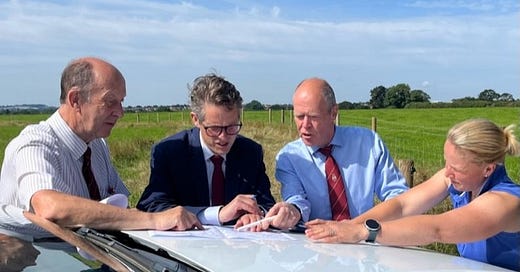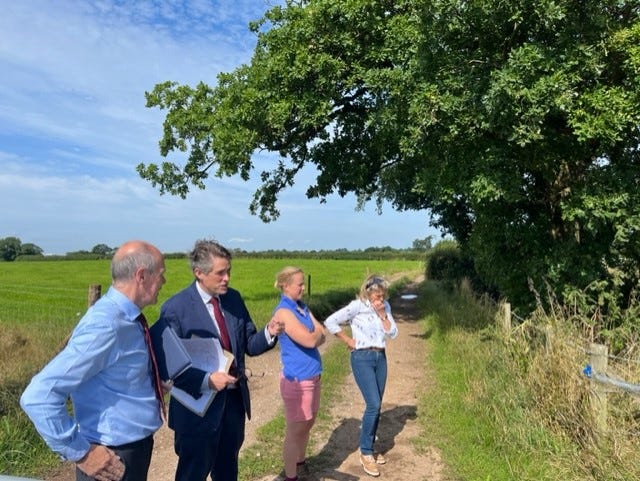Putting the Brakes on HS2
The wheels have come off HS2 – let’s stop this calamity while we can.
The budget has spiralled to more than £100 billion. Trains won’t even stop in central London. There will be no trains to Manchester until at least 2041. The reality of the ill-fated HS2 is – if you’ll excuse the pun – a complete trainwreck.
The balance sheet of this disastrous venture makes for sobering reading. The construction of the Euston terminal is estimated to set the taxpayer back £4.8 billion, while the damage of the western leg, Phase 2, will come to at least £24.6 billion. And that’s without even mentioning the £44.6 billion pound hole that the first leg, Phase 1, will blaze in the British public’s pocket.
Even the Chancellor has admitted that HS2 is the political equivalent of a runaway train. There will be no service to Leeds. Trains will not reach Birmingham until at least 2033. The future of the Euston terminal hangs in the balance, with the Prime Minister suggesting that trains will stop at Old Oak Common, a station which is 6km away from central London.
What makes this all the more infuriating is that there is simply no logical case to be made for HS2. The cheerleaders say that HS2 will shorten journey times. The reality says that any gains will be undermined by onward transit times, for example, from the hub at Birmingham Curzon Street on to Birmingham New Street. The cheerleaders say that HS2 will increase capacity on the West Coast Mainline. The reality says that it will actually reduce capacity north of Birmingham, especially at Crewe, where it will severely impact local services. And perhaps most importantly, say the cheerleaders, it will help the North and the Midlands level up. The reality responds with a resounding no: numerous reports have shown that HS2 will benefit London more than it will benefit northern towns and cities.
But what about the environment, supporters ask? Surely, they argue, high-speed electric train lines will reduce car usage and in turn cut carbon emissions. Surely, this is a good thing. Once again, this couldn’t be further from the truth. According to HS2’s own predictions, its construction and operation will emit 1.49m tons of CO2 equivalent. The carbon emissions created by its construction will, in fact, never be offset by any reductions it facilitates.
However, what is, perhaps, the strongest argument against this omnishambles of epic proportions is the real and undeniable harms it will wreak on local communities. This impact cannot be adequately summarised by numbers on a spreadsheet, nor can it truly be understood by reading the highbrow policy papers of Westminster thinktanks. It can only be comprehended by going out and speaking to those who will see their communities, their livelihoods, and their surroundings destroyed by HS2.
I have spoken with homeowners, farmers and small business owners across Staffordshire who have been subject to compulsory land seizures and have not received an ounce of compensation, leaving them staring into the abyss of financial ruin. With rural residents who bear the brunt of construction traffic and noise, and who are tired of being tarred with the brush of nimbyism. With communities who are angry that they are not being listened to. We deserve better, not just as a region, but as a country.
So, let’s start listening. Let’s open our eyes to the costs – financial, social, environmental – of this disaster. Let’s put the brakes on HS2, before it derails itself.





